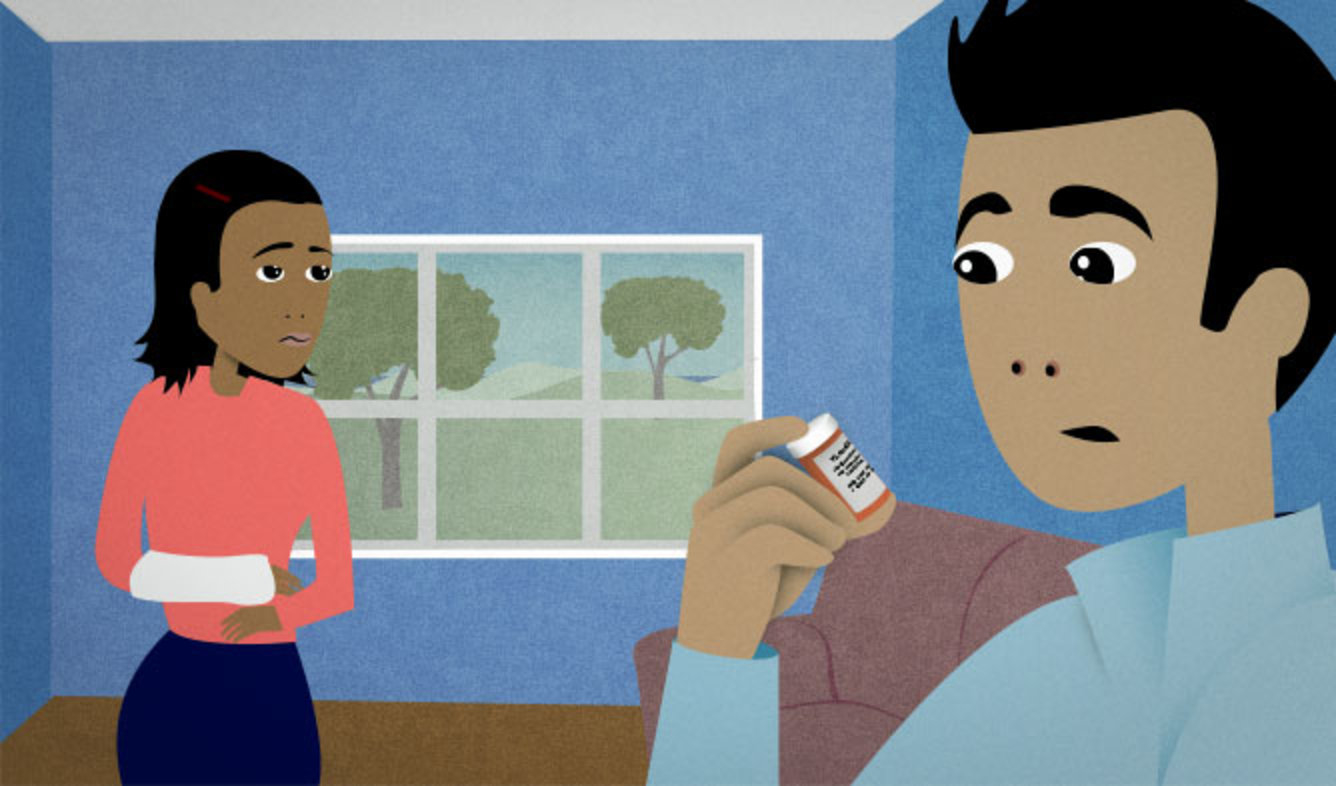“It says not to take it on an empty stomach.”
Your girlfriend broke a bone in her hand, and got a prescription for pain killers from her doctor. She asks you to give her a pill, but you read the instructions and find out that she's supposed to take the medicine after eating.
It says not to take it on an empty stomach.
Want Video and Sound? Follow us on YouTube

take (medicine)
In English, we use the word "take" to talk about medicine:
Take this three times a day with your meals.
Are you taking any medication?
You "take" medicine by eating or drinking it. It's usually incorrect to use "eat" or "drink" to talk about medicine.
It says to (do something)
When you read some instructions and then report them to another person, use the phrase "It says to ___." For example:
It says to add the onions and celery and simmer for five minutes.
For warnings, say "It says not to ___":
It says not to touch the connectors.
You can also specify where the instructions came from:
The sign says not to go in there.
It might seem strange to use "says" with written instructions since the instructions don't actually speak. But English doesn't have a separate verb to describe information that's written down, so we use "says".
(do something) on an empty stomach
The phrase "on an empty stomach" means "without eating". For example:
I can't think on an empty stomach.
I've heard that exercising on an empty stomach causes your body to burn more fat.
It's better not to take it on an empty stomach.
